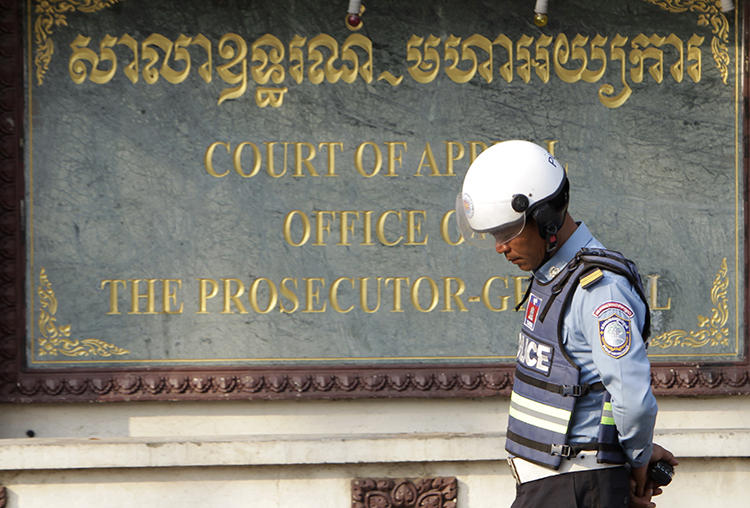Bangkok, July 26, 2019 — Cambodia should drop incitement charges against two local journalists and stop using legal threats to intimidate and harass reporters, the Committee to Protect Journalists said today.
On July 19, in the Bei commune of the southern city of Sihanoukville, military police arrested Hun Sokha, publisher of the CPNTV news broadcaster, and Keo Ratana, publisher of the online news channel TN-TV, while they were live-streaming a protest by villagers trying to stop a private company from clearing land, according to press reports.
On July 23, the Preah Sihanouk Provincial Court released the journalists on bail after charging them with incitement to commit a felony, as accomplices in violence against a property owner, and “incitement through journalism,” according to Legal Aid Cambodia, a local group providing assistance to Keo Ratana, which communicated with CPJ by email, and Phnom Penh-based newspaper the Khmer Times.
If found guilty of those charges, the journalists could face prison time, according to the Cambodian criminal code.
“Cambodia has a long, troubled history of accusing journalists of incitement while covering civil strife or unrest,” said Shawn Crispin, CPJ’s senior Southeast Asia representative. “Authorities should drop these misplaced charges against Hun Sokha and Keo Ratana and stop using legal threats to censor and harass journalists.”
Five additional people present at the protest were charged with intent to commit a felony, according to the Khmer Times. Legal Aid Cambodia told CPJ the court is investigating the charges and that no trial dates have been set.
CPJ was unable to reach either reporter at phone numbers provided by one of their legal representatives. CPJ’s emailed request for comment from Cambodia’s Information Ministry did not receive an immediate reply.
Authorities have previously used incitement charges to intimidate journalists. In 2017, a state prosecutor filed criminal incitement charges against Cambodia Daily reporters Aun Pheap and Zsombor Peter over their election-related news coverage in eastern Ratanakhiri province, CPJ reported at the time.
In 2018, Aun Pheap fled to the United States due to concerns he would not receive a fair trial, according to news reports.
